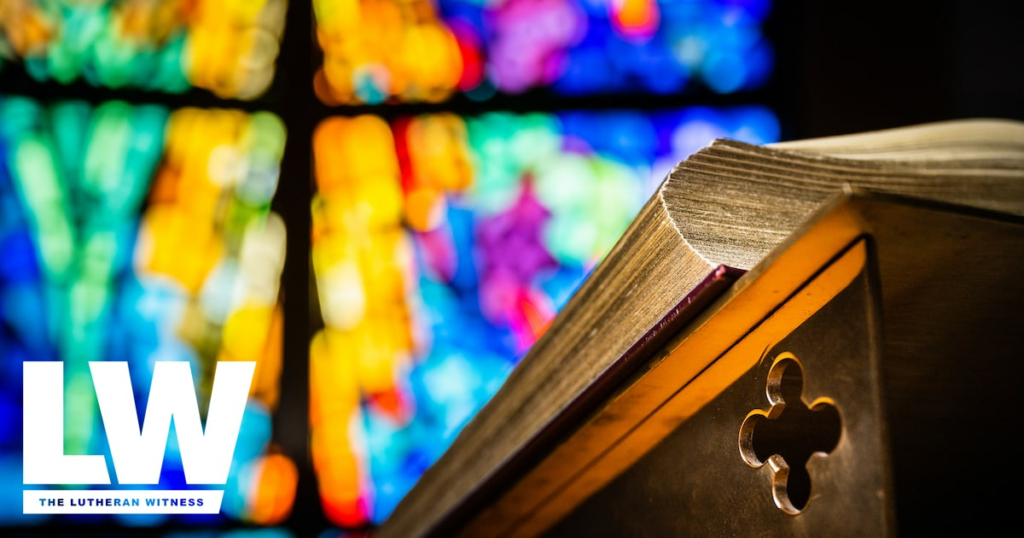by Dr. James M. Tallmon
Roughly 20 years ago, a group of homeschoolers, inspired by British novelist Dorothy Sayers’ “The Lost Tools of Learning,” set out to apply the Sayers model to educating their children. A little more than a decade ago, a group of Missouri Synod educators, impressed by that movement but wanting to give it a distinctly Lutheran feel, formed the Consortium for Classical and Lutheran Education (CCLE).
Now there are hundreds of LCMS home educators, parochial school teachers and others across the nation, allied to educate their children in a classical liberal arts fashion. There are dozens of parish schools that now ascribe to this model: east and west, north and south, from Virginia to California and every LCMS church school in Wyoming. The membership of CCLE includes as many home educators as parochial school teachers, and there are many, many others who utilize a classical approach but remain independent.
It’s clear that God is blessing! But what is the nature of this blessing? Why is it important? And how should God’s faithful people respond?
As the Consortium has fleshed out what makes a classical and Lutheran education Lutheran, it has become increasingly clear that the difference between that and classical Christian education, per se, is not so much a matter of curriculum but of theology. Because the classical Lutheran approach is based on central pillars of Lutheran theology, the tenor, conduct, and disposition of both teaching and discipline in a Lutheran school will be significantly different from what one finds in a Catholic, evangelical or fundamentalist church school.
The doctrine of vocation, for example, is an overarching concept in classical Lutheran education. How so? The Rev. Dr. Martin Luther answered that question in “On Christian Liberty” by saying that we as Christians live “in Christ through faith and in our neighbor through love.”
The paradoxthat we are simultaneously sons of the King and slaves of allis a sobering, humbling approach to all of the Christian life. It is one that has the potential to align all learning and activity under the cross. In short, education conducted in the spirit of Christian liberty will, of necessity, produce a different sort of student than education based on moralism and a theology of glory.
The recent publication of Thomas Korcok’s Lutheran Education (available at www.cph.org) brought a lot of things into focus. Korcock underscores how the reformers were deeply committed to the education of our children, for the life of the church and the world, and that the traditional liberal arts were particularly suited to that end. Korcok’s historical sketch of the Saxon German’s emigration to America underscores their keen interest in educating their children as they saw fit. And they saw fit to follow the model laid out by their Reformation forebears: the traditional, liberal arts model. As such, we have come to appreciate how central to our Lutheran heritage is this particular kind of education.
Korcok sums up the Lutheran distinctiveness in a pithy way: Baptism, catechesis and vocation.
Christian liberal arts education equips one for Christian liberty. Scripture teaches that the Christian uses his liberty to serve others. Therefore, Christian liberal arts education equips one to serve others.
In the final analysis, Christian liberal arts education forms wise and eloquent leaders for church and state as well as wise management of hearth and home. (For a fuller discussion of the temporal blessings of liberally educated citizens, see Luther’s “The Temporal Benefit or Injury Arising from the Support or the Neglect of Schools.”)
It is important because, as Korcok teaches, beginning with the Great Commission:
Growth in Baptism requires study of God’s Word. Right understanding of God’s Word requires right education. Therefore, Growth in Baptism requires right education!
This classical Lutheran education, this “right education,” is a true blessing, and as Luther said, “When it rains it rains, but when it’s gone, it’s gone.” The precise nature of this blessing is that we are beginning to see why our own children will not learn to think like Lutherans unless they are educated along the lines of the classical liberal arts. Why? Because secular, progressive, postmodern education simply does not cultivate the habits of mind one needs to grasp, defend and abide in a sacramental and confessional faith. That is why Luther strongly encourages churches to form schools and, what is more, that those schools teach in a liberal arts fashion.
The unhelpful, dominant approach to education today imperils the faith of our children. Today, we must prayerfully respond to this movement for the spiritual benefit of those young ones entrusted to our care.
—
> To learn more, go to www.CCLE.org
About the author: Dr. James M. Tallmon is professor of rhetoric and director of debate at Patrick Henry College and serves on the LCMS Board for National Mission.
February 2012





